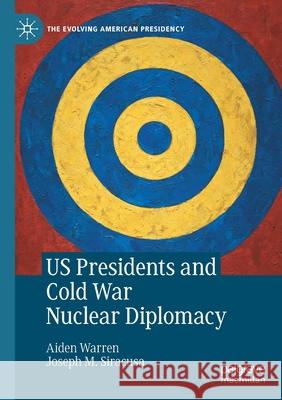Us Presidents and Cold War Nuclear Diplomacy » książka
topmenu
Us Presidents and Cold War Nuclear Diplomacy
ISBN-13: 9783030619565 / Angielski / Miękka / 2022 / 272 str.
Us Presidents and Cold War Nuclear Diplomacy
ISBN-13: 9783030619565 / Angielski / Miękka / 2022 / 272 str.
cena 483,04
(netto: 460,04 VAT: 5%)
Najniższa cena z 30 dni: 462,63
(netto: 460,04 VAT: 5%)
Najniższa cena z 30 dni: 462,63
Termin realizacji zamówienia:
ok. 16-18 dni roboczych.
ok. 16-18 dni roboczych.
Darmowa dostawa!
Kategorie BISAC:
Wydawca:
Palgrave MacMillan
Język:
Angielski
ISBN-13:
9783030619565
Rok wydania:
2022
Ilość stron:
272
Waga:
0.36 kg
Wymiary:
21.01 x 14.81 x 1.55
Oprawa:
Miękka
Wolumenów:
01
Dodatkowe informacje:
Wydanie ilustrowane











